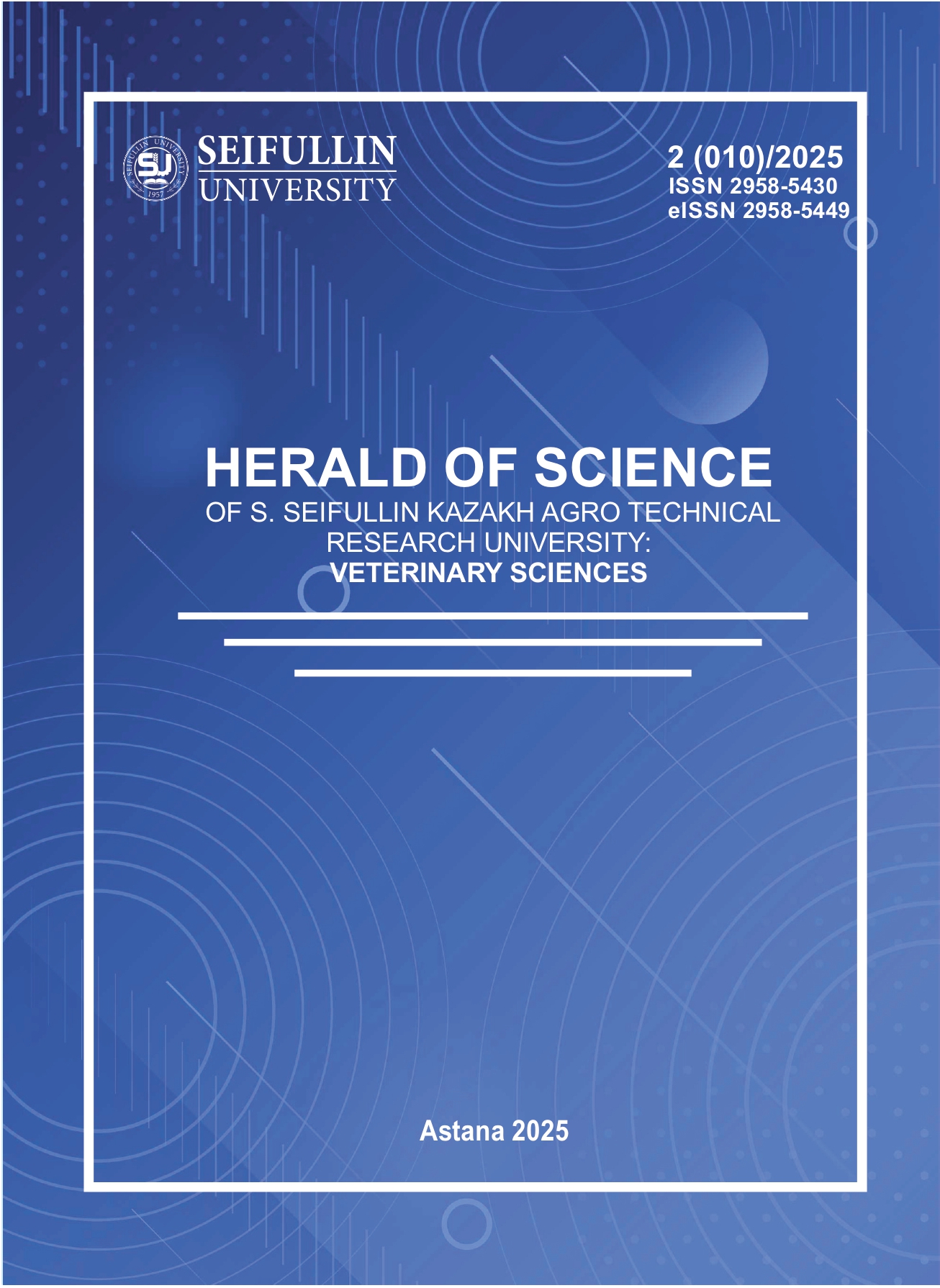Epizootic situation and comprehensive diagnosis of equine salmonellosis-associated abortion in the Republic of Kazakhstan
DOI:
https://doi.org/10.51452/kazatuvc.2025.2(010).1952Keywords:
abortion; diagnostics; epizootiology; horses; MALDI-TOF; salmonellosis.Abstract
Background and Aim. Abortion associated with equine salmonellosis is an infectious disease that significantly affects the productivity of herd-based horse breeding in the Republic of Kazakhstan. The disease is characterized by late term abortions and is associated with considerable economic losses in the agricultural sector. The aim of this study was to detect Salmonella DNA using molecular genetic methods.
Materials and Methods. The study was based on pathological material collected from horses in nine regions of Kazakhstan during the period from 2023 to 2025.
Results. PCR analysis revealed that the proportion of positive samples ranged from 25% to 33.3%, depending on the year. Enzyme-linked immunosorbent assay (ELISA) of 309 equine serum samples detected antibodies to Salmonella abortus equi in 29 cases (10.6%). Microbiological investigations using matrix-assisted laser desorption/ionization time-of-flight mass spectrometry (MALDI-TOF MS) confirmed the presence of Salmonella spp., as well as opportunistic microorganisms such as Enterobacter hormaechei, Pantoea agglomerans, and Escherichia hermannii.
Conclusion. The obtained results confirm the circulation of the pathogen among horses and emphasize the need for ongoing epizootiological surveillance. Furthermore, they highlight the importance of continued molecular and genetic studies, including whole genome sequencing, to enhance understanding of the disease’s epidemiology and to optimize preventive measures.

